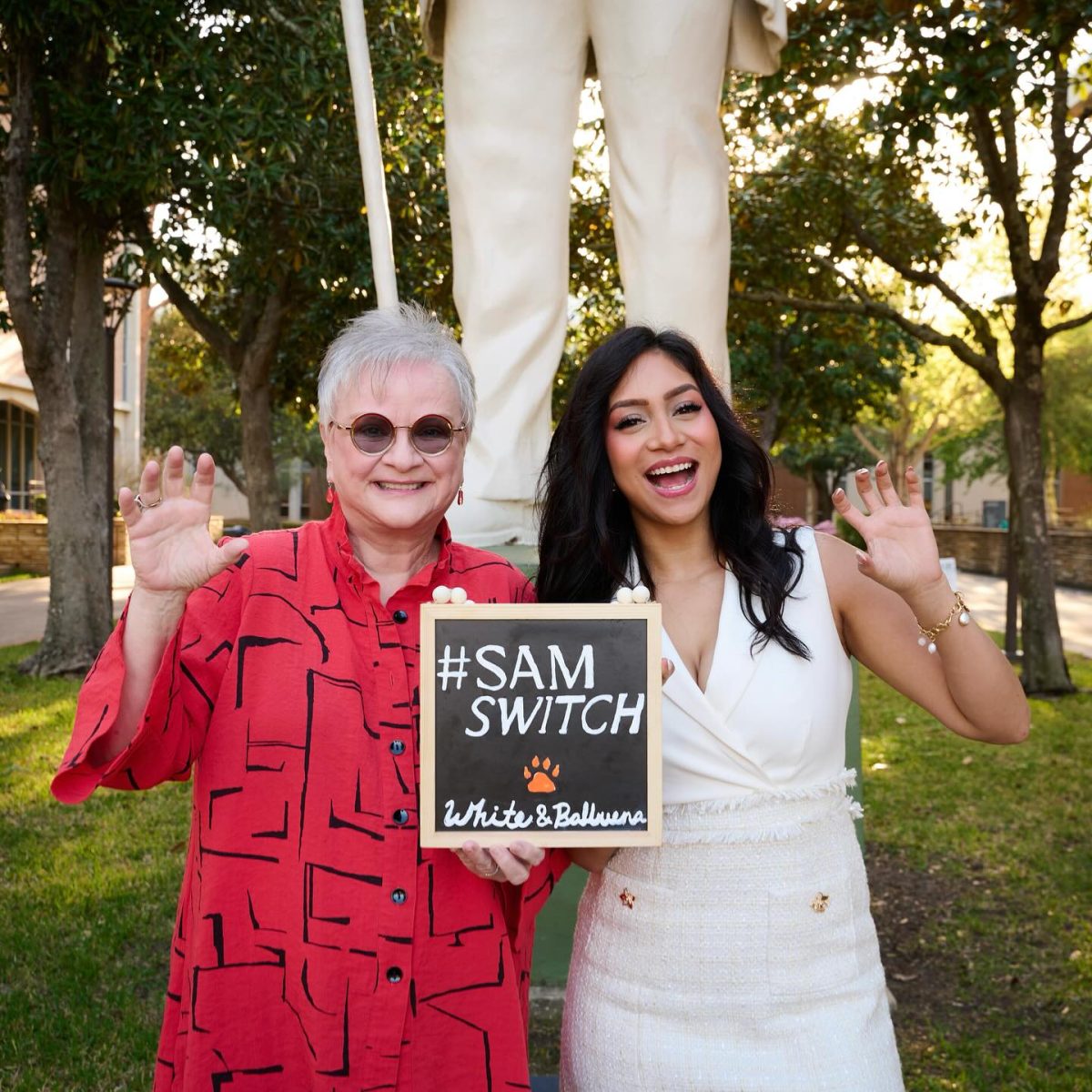One year after the attack on the World Trade Center and the Pentagon, America has taken numerous steps to fight terrorism around the world.President Bush addressed the nation shortly after the attacks, promising the nation would destroy the terrorist organizations responsible for Sept. 11.”We will not tire, we will not falter and we will not fail,” said President Bush.On Oct. 7, 2001, the U.S. military launched Operation Enduring Freedom in coalition with the United Kingdom. The operation consisted of targeting key al-Qaida and Taliban targets in Afghanistan, such as the cities of Kabul and Kandahar, both of which served as major Taliban headquarters.Reports circled that U.S. and UK Special Forces had already landed in Afghanistan weeks prior to the official announcement, but representatives from both governments denied these statements.President Bush said the United States would bomb enemy terrorist and military training grounds, along with other key strategic points, and also supply food to starving Afghani people. The Taliban condemned the U.S. attacks as an attack on Islam.On Nov. 1, the House of Representatives passed the Airline Security Bill, which was signed into law by President Bush on Nov. 19. The law mandated that all airport baggage handlers become federal government employees and also made the cockpit doors stronger, as well as pay for more armed federal agents on flights. In order to fund the new changes, airline passengers are charged an additional $2.50 flight fee each time they board an airplane.The Taliban began a retreat on Nov. 13, after losing major cities Kandahar and Jalalabad to the Northern Alliance on Nov. 13 and 14. The raid also freed American aid workers, who were being held as prisoners on charges of preaching Christianity, as well as Afghan social workers from the Shelter Now organization.Northern Alliance troops forces raided the city of Konduz in late November and took close to 1,000 Taliban fighters prisoner. The next day, some prisoners staged a violent uprising at the Qala-I Janghi prison near Mazar-e Sharif, killing themselves and guards with hand grenades.The event resulted in the first confirmed American killed in Afghanistan, CIA agent John Spann, as well as the discovery of John Walker Lindh, an American citizen who had joined the Taliban earlier in the year prior to the terrorist attacks. On Dec. 11, anti-Taliban forces aided by American air support and Special Forces managed to attack the al-Qaeda cave infrastructure in Tora Bora. Anti-Taliban forces confiscated a cache of weapons at the final al-Qaeda stronghold in Afghanistan after six days of fighting, taking 19 prisoners.By January 2002, the United States interned more than 140 enemy fighters at Camp X-Ray in Guantonamo Bay, Cuba.The United States resumed missile strikes on the mountainous region in eastern Afghanistan in early March, after intelligence suggested there were still al-Qaida and Taliban forces in hiding.The new strikes were part of Operation Anaconda, a major offensive against opposition forces in Afghanistan led by U.S. troops. The forces also consisted of Canadian and Norwegian troops and Afghan fighters, as well as British, Australian and New Zealandish Special Forces.The 12-day offensive became the largest so far of the war. More than 2,000 allied troops participated in the siege of the Shah-i-Kot Valley in Eastern Afghanistan. Eight U.S. troops and three allied fighters were reported killed in action, and approximately 450 enemy soldiers were also killed.As of September 2002, about 20 U.S. troops have been killed in combat or hostile situation in Afghanistan. Reports place the number of enemy soldiers in the thousands.Despite numerous victories, the U.S. military action has not been with error. In June, U.S. troops opened fire on a wedding ceremony after confusing gunshots fired in celebration as hostile gunfire. About 50 people attending the wedding were killed and 117 people were injured. Several U.S. troops have also been killed by friendly fire, as well as allied troops also killed by accident.Apart from Afghanistan, the United States plans to continue its assault on terrorism elsewhere in the world. American forces are aiding Russian soldiers in neighboring former Soviet Republic of Georgia, and President Bush is seeking Congress’s approval to invade Iraq.The United States has also sought to prosecute suspected terrorists that have been captured in combat or arrested.Zacarias Moussaoui, referred to as the “20th Hijacker” because of his suspected masterminding of the Sept. 11 attacks, is being held pending trial for terrorist activities and faces the death penalty. Moussaoui has pleaded not guilty, and the United States is seeking evidence from Germany before it begins its trial. The German government, which opposes capital punishment, is currently refusing to release the evidence until the United States seeks a lesser sentence for Moussaoui.John Walker Lindh was found guilty of carrying a weapon and supplying services for the Taliban. In exchange for pleading guilty, charges of conspiracy to kill Americans were dropped. He received a 20-year prison sentence.Numerous other Taliban and al-Qaida officers are currently being held pending trials. They include Abu Zubaydah, a major al-Qaida officer arrested in Pakistan, and Abdul Rahim Riyadh, a major finance officer.
Categories:
Precautions taken after terrorist attacks
October 9, 2002
0
More to Discover







